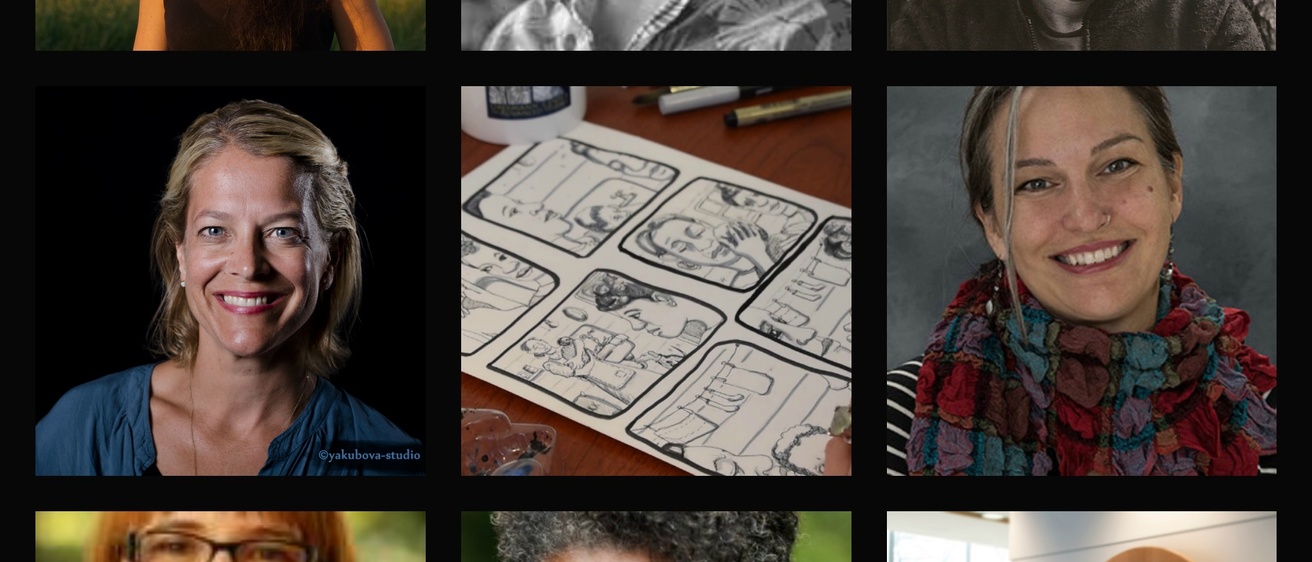“It is essential to seize the power of archives and use it to hold institutional and government leaders accountable. All aspects of society should be documented, not simply those where power has traditionally resided.” —Randall Jimerson, “Archives for All: Professional Responsibility and Social Justice”
Animating the Archives
Archives conjure up visions of crumbling files tied with frayed string, shoved onto over-weighted shelves, and left to obscurity. But archives can quickly become living, breathing, and immediately relevant—inspiring action rather than gathering dust.
“Against Amnesia: Archives, Evidence, and Social Justice,” this year’s Provost’s Global Forum/Obermann Humanities Symposium, upends any notion of moldering archives. From March 1–3, 2018, scholars, artists, activists, and archivists from diverse disciplines will share research and personal stories about the ways they have used archival material—corporate records, legal affidavits, newspaper clippings, genetic material, climate change data, and our own personal technology—to reinterpret the past, demand justice, and inspire change.
Diverse Speakers
The symposium features three keynote speakers with uniquely different approaches to working with archival material:
- Trudy Huskamp Peterson is the former Archivist of the United States. A native of Iowa and a UI alum, Peterson has consulted with truth commissions in South Africa and Honduras, as well as with the Special Court for Sierra Leone. She has also worked with police archives in Guatemala, training the staff in archival processes particular to formerly repressive regimes.
- Internationally acclaimed experimental filmmaker Bill Morrison is known for films that draw upon rare and often decaying archival material as sources for profound meditations on history, memory, and the ephemerality of human life and mass media. He will introduce and screen his feature-length film, Dawson City: Frozen Time (2016), which is built upon the discovery of hundreds of reels of early film buried in the Canadian Yukon territory in 1978.
- William S. Pretzer is Senior Curator of History at the Smithsonian National Museum of African American History and Culture. He co-curated one of the Museum’s inaugural exhibitions, A Changing America: 1968 and Beyond, and supervised the work of a group of curators and museum specialists during the pre-building operations of a museum in the making. He is currently creating a Center for the Study of African American Innovation and Entrepreneurship and collecting in the areas of business, labor, science, and technology.
In addition to these speakers, other visitors will share research and artistic projects that include a memoir of one scholar’s family’s enslavement, the history of eugenic sterilization programs, a graphic history of one of America’s bloodiest race riots, a digital project that seeks to “remix and decolonize” the archive, an ongoing effort by scholars and civilians to save federal environmental data, and a “living museum” in a former apartheid-era prison in South Africa.
Cross-Campus Interest
The symposium has been organized by a small team of UI faculty and archivists, including Paula Amad (Cinematic Arts), Amy Chen (UI Libraries), Matthew Hannah (Mellon postdoctoral fellow), Jennifer Sessions (History), and Miriam Thaggert (English, African American Studies, and Gender, Women’s, & Sexuality Studies). Teresa Mangum, Director of the Obermann Center and a professor in the departments of Gender, Women’s, & Sexuality Studies and English, has led the planning.
Mangum is delighted by the diverse topics and speakers. “When we imagine archives, we picture libraries. Our symposium honors the work of those archives but also brings speakers who mine the larger world of archives for social justice work across the globe. We have such an exciting lineup of artists and scholars working across disciplines and world regions: Caribbean Studies, the Middle Passage and slave history, public health abuses, environmental threats, race riots, and indigenous archives. The speakers also show how archives have worked their way into every conceivable genre: memoir and creative writing, history, literature, music, theater, film, the visual arts, and comics.”
In addition to the traditional scholarly talks, the symposium will include two film screenings, a pop-up art exhibit, and a literary reading. The events are free and open to all. For a full schedule, visit Archives Against Amnesia.
Archives Crawl Amplifies Local Archives
The week prior to the symposium, the first ever Iowa City Archives Crawl will occur at four downtown sites: the Iowa City Public Library, the State Historical Society of Iowa, the UI Museum of Natural History, and UI Special Collections in the Main Library. The Obermann Center helped organize this event to draw attention to the rich collections that exist right here in our local archives, libraries, and museums.
Trina Roberts, Director of the Pentacrest Museums and one of the organizers of the Crawl, says, “It’s rare to get a chance to see some of these objects and specimens at all, let alone so many different collections all in one day!"
From 11:00 am to 3:00 p.m. on February 24, visitors can start at any of the four sites, grab a "passport," and guess at mystery objects, listen to short talks by librarians and archivists highlighting their collections, and take behind-the-scenes tours. Other archives-related organizations will have tables at each site, so that visitors can learn about fifteen regional organizations by visiting four downtown sites. Displays and talks will run the gamut from fossils to punk rock. A schedule of the day’s events can be found here.
Support for Symposium
"Against Amnesia" is supported by major funding from the Ida Beam Visiting Professorships Program, the Provost’s Global Forum International Programs grant, UI Center for Human Rights, the Andrew W. Mellon-funded Digital Bridges for Humanistic Inquiry, and the Obermann Center for Advanced Studies. Additional support comes from the UI School of Music; UI Libraries, Special Collections; UI Department of History; UI Department of Cinematic Arts; UI Department of English; UI Department of History; UI Program in American Indian and Native Studies; UI Division of World Languages, Literatures, and Cultures; UI Pentacrest Museums; the Iowa Office of the State Archaeologist; and the State Historical Society of Iowa.
For more information about any of these events, please contact Erin Hackathorn at erin-hackathorn@uiowa.edu, or (319) 335-4034.
